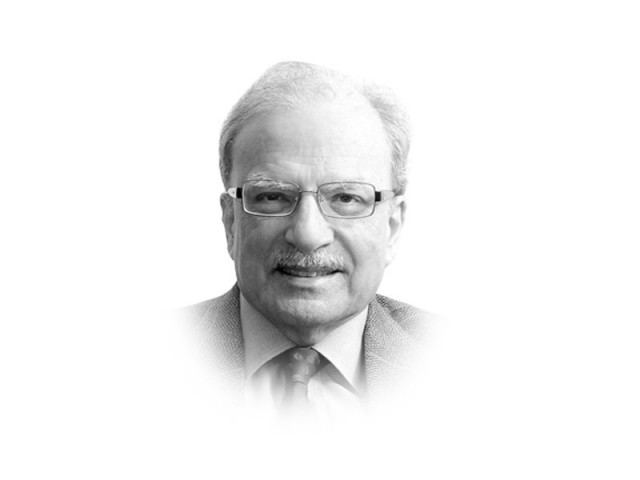China: the new champion of globalisation
International economics is also often guided by the same principles as physics

The writer is a former caretaker finance minister and served as vice-president at the World Bank
The Chinese leader was not expected to offer such a stout defence of globalisation, a task that had always been performed by the American leadership. “Some people blame economic globalisation for the chaos in our world,” Xi said. “One should not retreat to the harbour when encountering a storm, for this will never get us to the other shore of the ocean.” Xi then quoted from British novelist Charles Dickens. “It was the best of times, it was the worst of times.” He said “these are the words used by the English writer Charles Dickens to describe the world after the French Revolution. Today we also live in a world of contradictions.”
But it was clear that the Chinese leader was opting for globalisation, an economic order in which the world’s nations worked together for their mutual benefit. It was this belief that had led to the establishment in 1946 of the two Bretton Woods institutions, the International Monetary Fund and the World Bank. To these was added the World Trade Organisation in 1995. The United States was the main architect of the global order and also its principal beneficiary. However, Donald Trump had little use for it. He believed in bilateralism, a system in which America would sit across the table one nation at a time and conclude a deal. In this he was putting into practice at the international level the method he had used in his real-estate business. This approach was encapsulated by him in a book, The Art of the Deal, written for him by a journalist.
Pankaj Mishra, a Europe-based writer of Indian descent, wrote while commenting on Xi’s performance at Davos, that the Chinese president is “entitled to some of his rhetorical point-scoring. The financial crisis of 2008 greatly weakened the American economy, but left China relatively unscathed. More important, China, whose share of world trade in the mid-1970s was less than 0.5 per cent, is today the world’s leading exporter — the hub of new and increasingly dense transcontinental trading networks that bypass the United States. America’s status as the linchpin of the global economic order is now endangered. The trading system China dominates has reduced the long dependency of Latin American and sub-Saharan African countries on American and European markets. China is now bringing to a close the first phase of globalisation, begun by Europe and the United States in the 19th century. In the process it is making East Asia the new centre of the world economy.” For the reasons that will became apparent later in this article, China is spearheading a movement and a development programme that could make South Asia, with its large population and abundant resources, an active participant in a new type of international commerce, the one based on land rather than on the sea.
In his most recent book, Straight Talk on Trade, the Harvard economist Doni Rodrick accuses fellow economists of holding fast to what Mishra in the above-quoted article refers to as “a simple-minded view of free trade and globalisation, one that caused economic chaos and political backlash across the West. “Are economists,” asks Rodrick “responsible for Donald Trump’s shocking victory in the US presidential election?” The obvious answer is no but Trump the anti-globalist was able to sell the idea that those who had suffered from an open world economic system needed to give him support for refashioning the old system.
China entered the global arena aggressively, confident that it had vast amount of resources it could deploy to influence the countries in its neighbourhood. It focused especially on the nations to its west. These included Pakistan, Afghanistan and the Central Asian republics. Massive investments started to be made in these countries within the context of what Beijing called the Road and Belt Initiative. There are plans to invest more than $60 billion in implementing the China-Pakistan Economic Corridor. About half of that amount will be spent in the landlocked Central Asian state of Kazakhstan. Beijing plans to spend as much as a trillion dollars in more than 60 countries over the next decade and a half. The aim is to develop land-based commerce as the basis of a new development paradigm Beijing has adopted to reorient its economy.
International economics is also often guided by the same principles as physics: To every action there is a reaction. China’s aggressive support of globalisation and the forms it has taken resulted in two responses by the United States aimed at Pakistan. Both are likely to be highly consequential for the South Asian subcontinent. One was to punish Pakistan for what Washington believed was not sufficient support for its war in Afghanistan. This punishment took several forms. Among them was a significant reduction in the American assistance to Islamabad. The second was to internationalise its pressure on Pakistan. It mobilised the Financial Action Task Force to include Pakistan in its ‘watchlist’. The FATF postponed action for three months. It is obvious that Pakistan must prepare itself to face increased pressure from Washington. Looking to China is clearly an option.
Published in The Express Tribune, February 26th, 2018.
Like Opinion & Editorial on Facebook, follow @ETOpEd on Twitter to receive all updates on all our daily pieces.















COMMENTS
Comments are moderated and generally will be posted if they are on-topic and not abusive.
For more information, please see our Comments FAQ